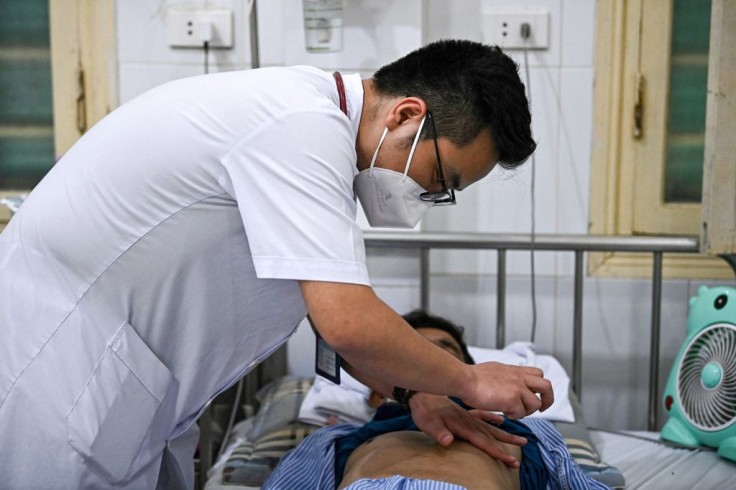
Long Beach City Council is set to approve a public health emergency due to a local tuberculosis epidemic. Health Department personnel are eagerly screening contacts for TB through symptom assessment, blood or skin tests, and chest x-rays.
Surveillance efforts are anticipated to augment, increasing detected contacts in the coming days. The city is deepening precautionary measures and launching a public information campaign about tuberculosis.
California Health Department Assesses Individuals for Tuberculosis
The Long Beach City Council is scheduled to approve the emergency announcement on Tuesday, allowing the pursuit of ongoing and extended intervention measures.
Tuberculosis, caused by Mycobacterium tuberculosis, escalates likewise to COVID-19 but commonly necessitates extended danger, particularly in crowded and poorly ventilated surroundings.
Dr. Anissa Davis, the city's health officer, declared the emergency after 14 cases were identified in a single-room occupancy hotel. The final authorization for the declaration will come from the City Council vote scheduled for Tuesday night.
Among the cases, nine patients have been hospitalized and one has passed away. About 175 people have been at risk of tuberculosis as a result of this outbreak, with the affected population facing essential hurdles to care, including homelessness, mental disease, substance use, and medical comorbidities.
Efforts are underway to test those risks, with no new cases recorded since last week. This outbreak coincides with a national rise in tuberculosis cases, reversing a 27-year decline.
The emergency declaration is expected to allocate additional resources for screening and treatment, particularly given the strain on the Long Beach health department, which primarily relies on grant funding.
Read Also: Effective Approaches to Baby Cough: Home Remedies, When To Seek Doctor's Evaluation
What To Do If Infected with Tuberculosis?
Patients are being isolated, treated, and provided temporary housing, food, and transportation as necessary. Homeless individuals are particularly vulnerable to tuberculosis due to factors such as substance use and living in crowded conditions.
Access to medical care has been restricted during the pandemic, potentially adding to delayed diagnoses and heightened transmission.
Dr. Luke Davis, an epidemiology and medicine professor at Yale, emphasizes the interconnected factors that facilitate tuberculosis transmission among susceptible populations. He highlights the significance of public health interventions and heightens screening efforts, especially among high-risk groups like the homeless.
While tuberculosis symptoms typically develop within two years of contamination, delayed diagnoses during the pandemic could result in ongoing transmission. Restricted funding and staffing further strain public health departments, and intensify the difficulties in opposing tuberculosis.
Dr. Priya Shete from the University of California, San Francisco, emphasizes the need for proactive measures to address the heightened tuberculosis cases. Without essential intervention, the trend is probable to continue.
Tuberculosis escalates through the air and mainly affects the lungs, causing continuous coughing, chest pain, and other symptoms. Most cases stem from latent infections that advance to active illness if left untreated. Medication involves extended antibiotic therapy, emphasizing the significance of early detection and intervention.
Although a vaccine exists, it is rarely used in the U.S. and does not allow full protection. Untreated diseases can lead to death.
The outbreak in Long Beach reflects a broader trend of increasing TB cases in California and nationwide. The CDC reported a rise in provisional TB cases in the United States in 2023 compared to pre-pandemic levels. This increase is attributed to factors such as healthcare disruptions during the pandemic recovery, global TB trends, and increased travel and migration post-pandemic.
Despite the rise in cases, the U.S. maintains one of the world's lowest TB incidence rates, and domestic transmission remains relatively uncommon.
Related Article : RIVM Raises Alarm over Surge in Whooping Cough Cases Among Infants